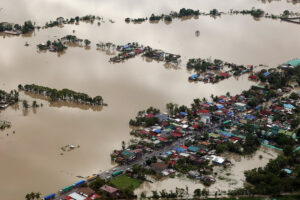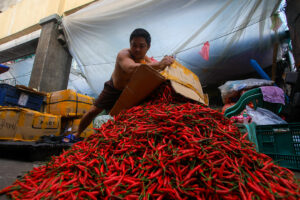5 regions selected for 7-year agri climate resilience project
THE Department of Agriculture (DA) said that its $39.2-million climate resiliency program will operate in five vulnerable regions, benefiting 1.25 million farmers. In a statement, the DA said the seven-year Adapting Philippine Agriculture to Climate Change (APA) project will promote “the adoption of climate-resilient farming practices, empowering farmers to establish sustainable enterprises.” Within the five […]

THE Department of Agriculture (DA) said that its $39.2-million climate resiliency program will operate in five vulnerable regions, benefiting 1.25 million farmers.
In a statement, the DA said the seven-year Adapting Philippine Agriculture to Climate Change (APA) project will promote “the adoption of climate-resilient farming practices, empowering farmers to establish sustainable enterprises.”
Within the five regions, which are the Cagayan Valley, the Cordillera Administrative Region, Bicol, Northern Mindanao, and Soccsksargen, the project will roll out across nine provinces and 100 municipalities.
The project is a partnership with the Food and Agriculture Organization (FAO) and the government weather service, known as PAGASA (Philippine Atmospheric, Geophysical and Astronomical Services Administration).
“Our combined efforts in implementing the APA Project will strengthen the foundation of progressive and resilient communities that we have begun through our various climate-resiliency-building initiatives,” Agriculture Secretary Francisco P. Tiu Laurel, Jr. said.
FAO Country Representative to the Philippines Lionel Henri Valentin Dabbadie said that the project will have long-term benefits for vulnerable farmers.
“It’s about creating opportunities for growth in the fields and through agricultural enterprises, ensuring that future generations continue to benefit from the rich agricultural heritage of the Philippines,” Mr. Dabbadie added.
The DA said that the program would expand on its Adaptation and Mitigation Initiative in Agriculture Program.
The project is financed under a Green Climate Fund grant amounting to $26.3 million with additional funding from the Philippine government of $12.9 million. — Adrian H. Halili























